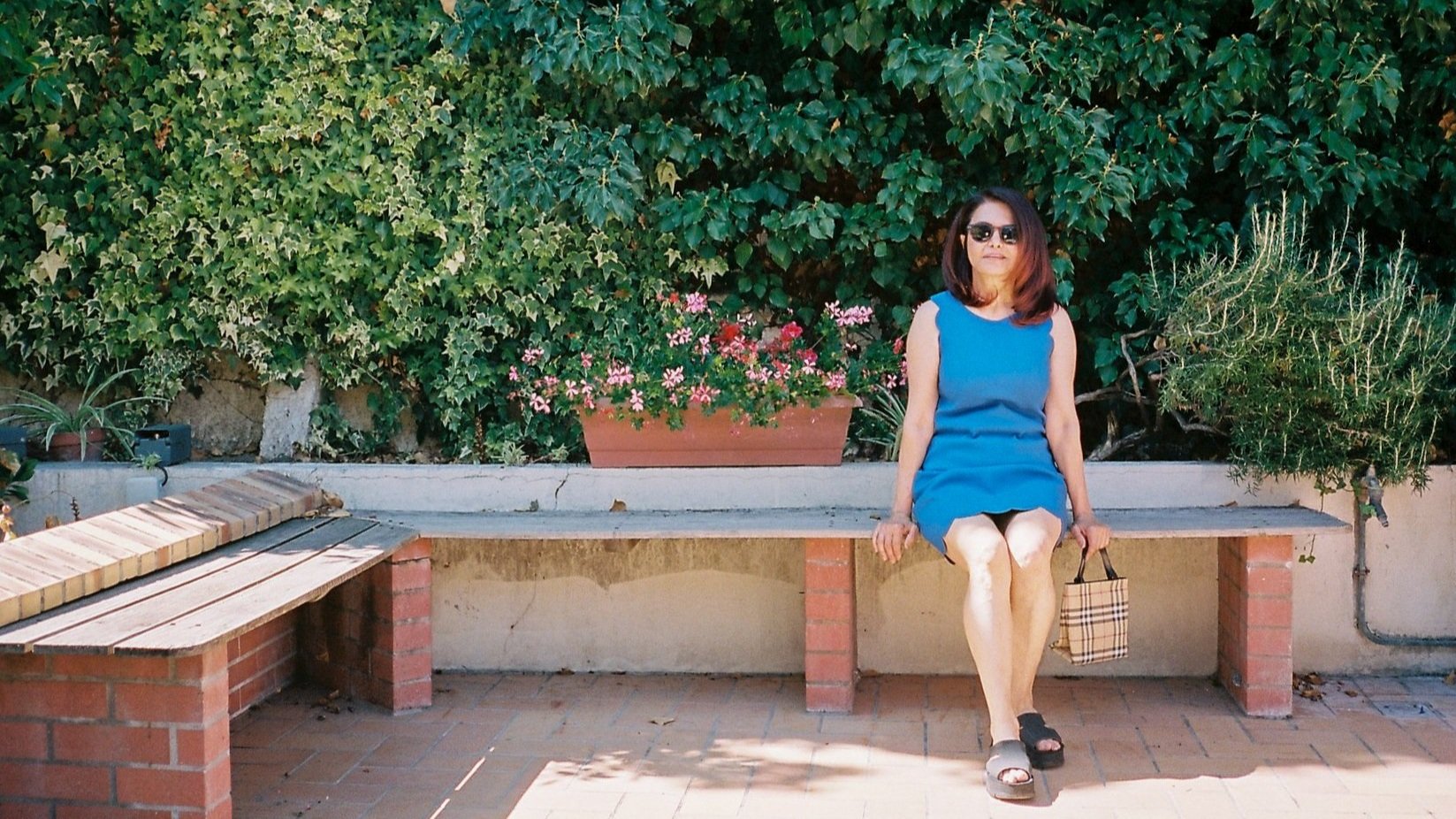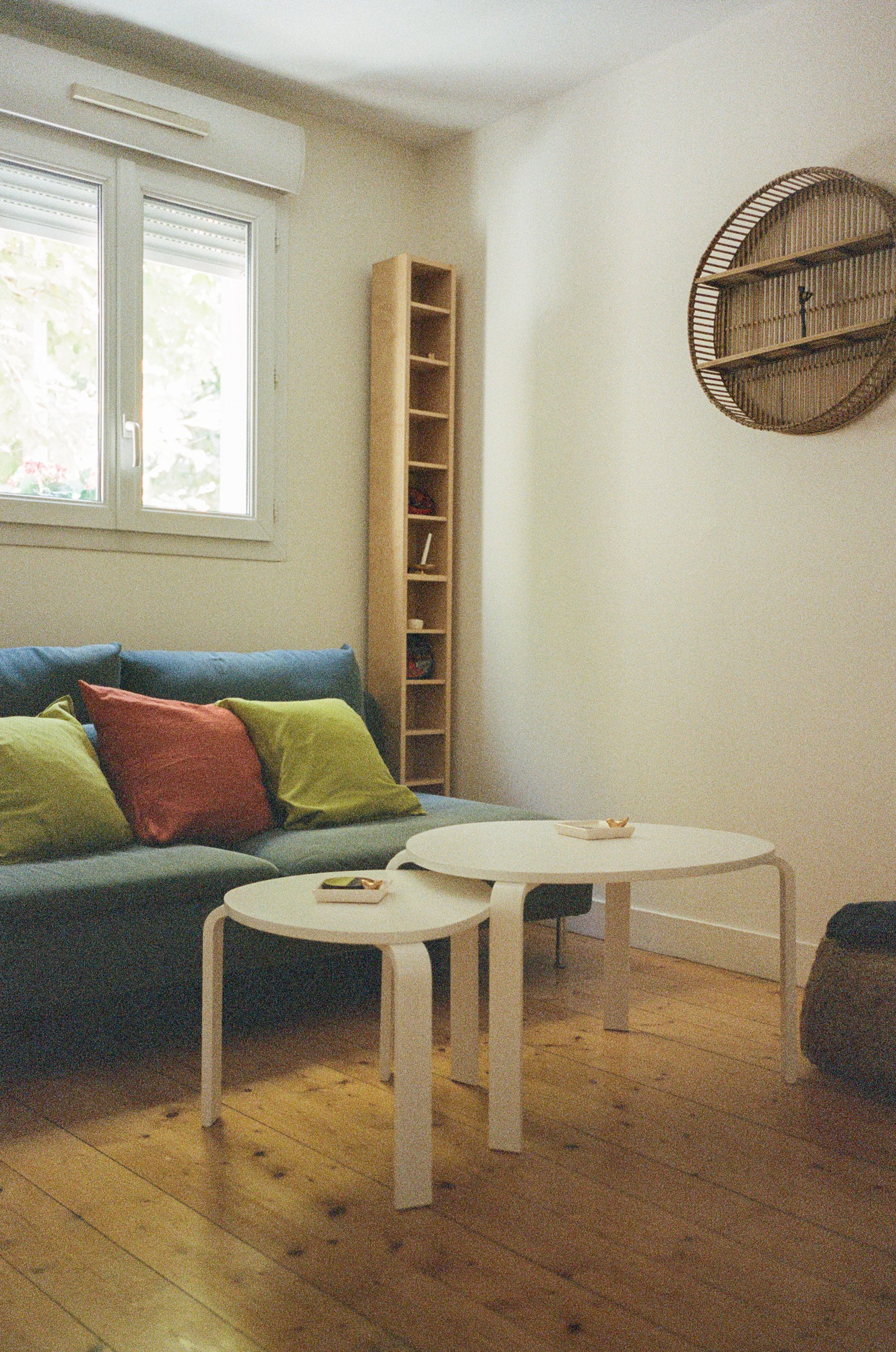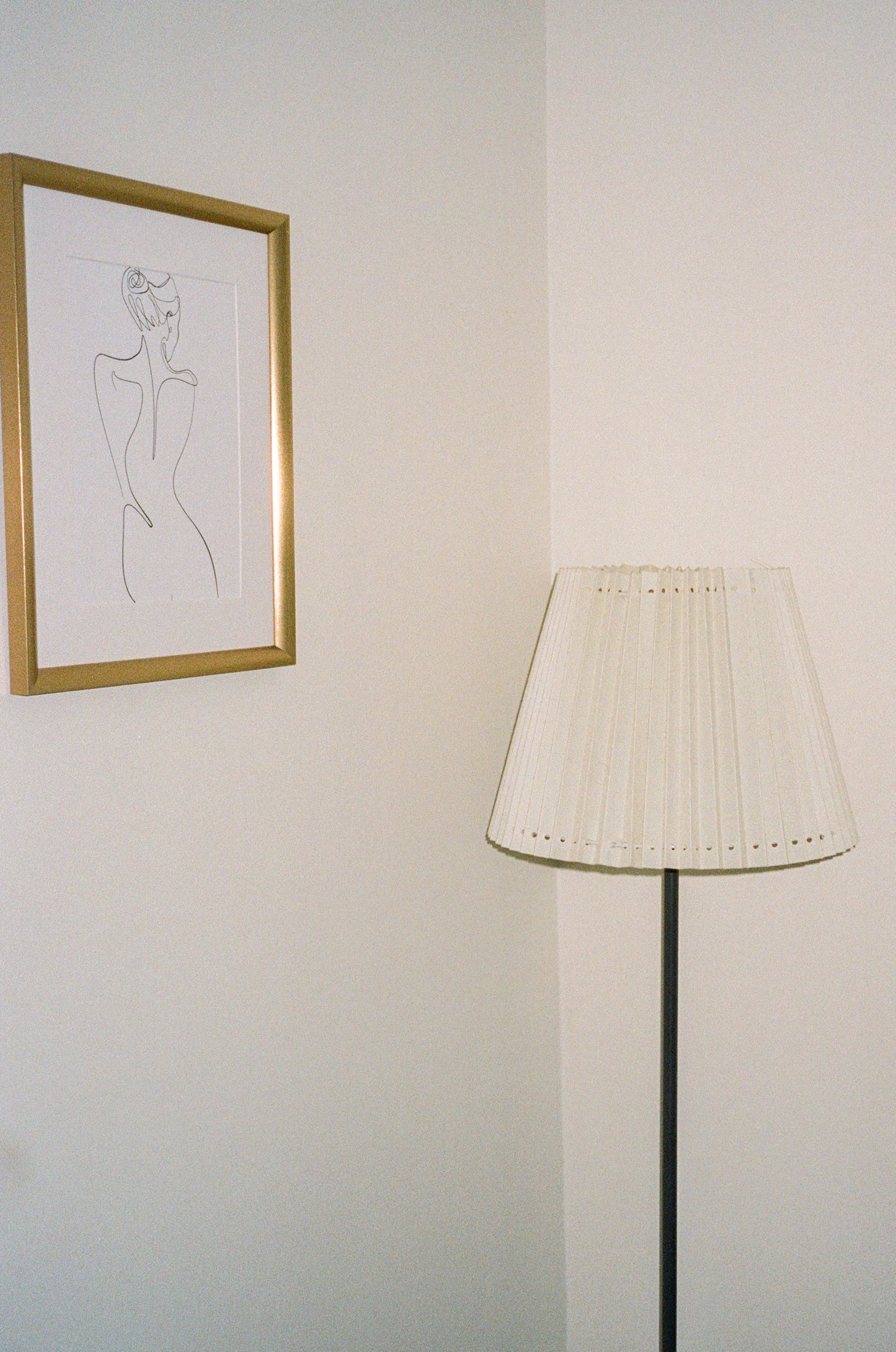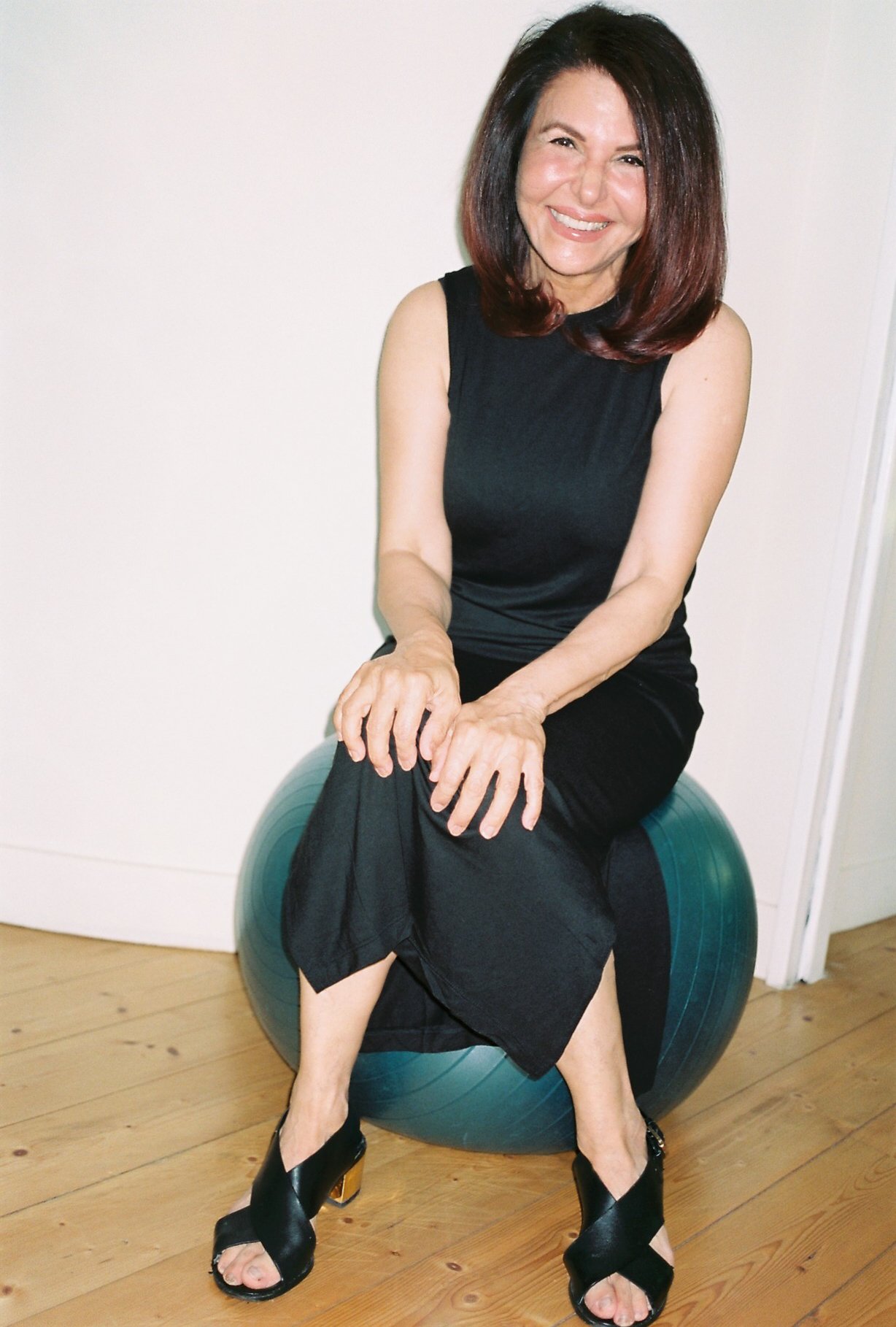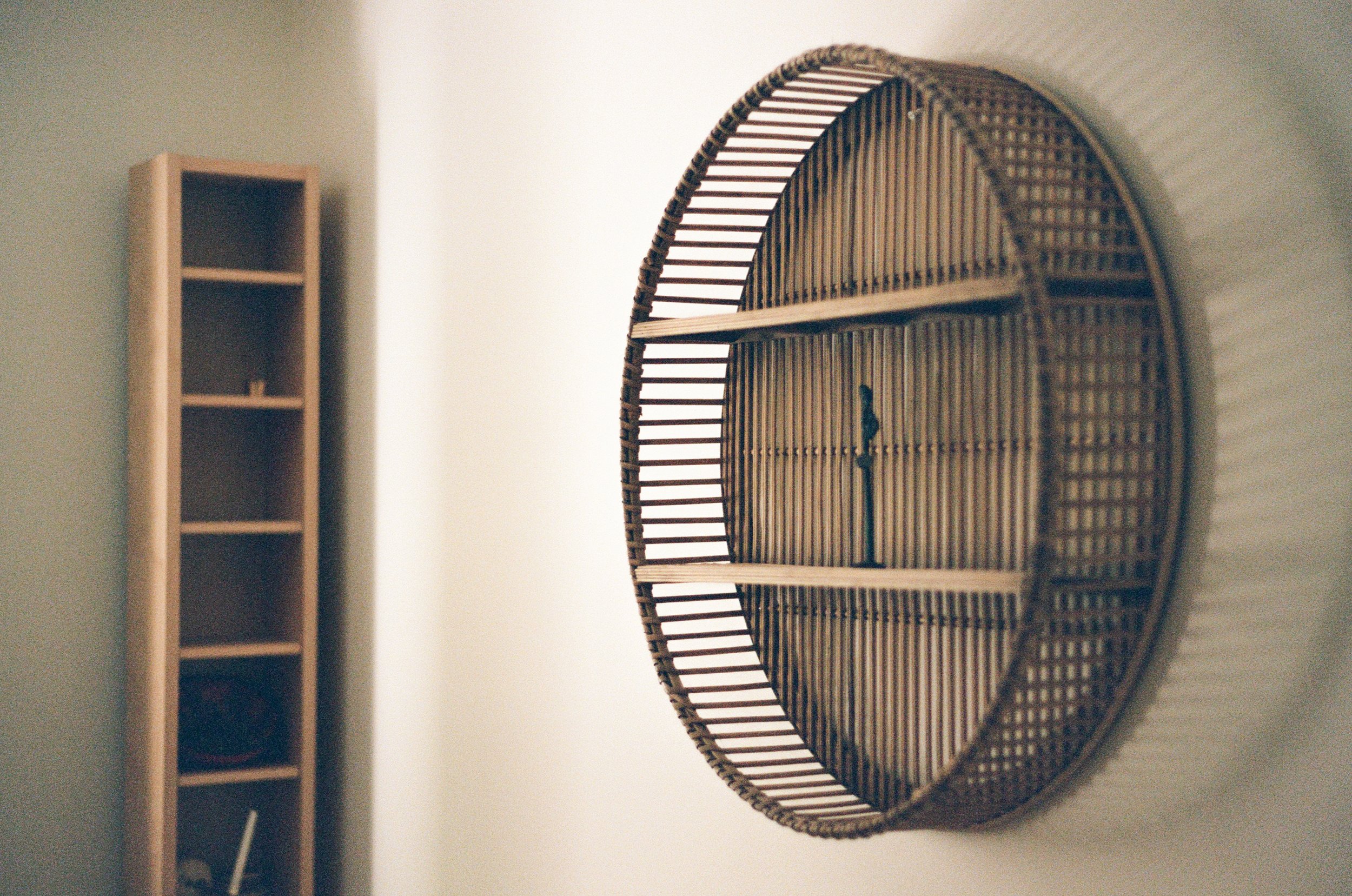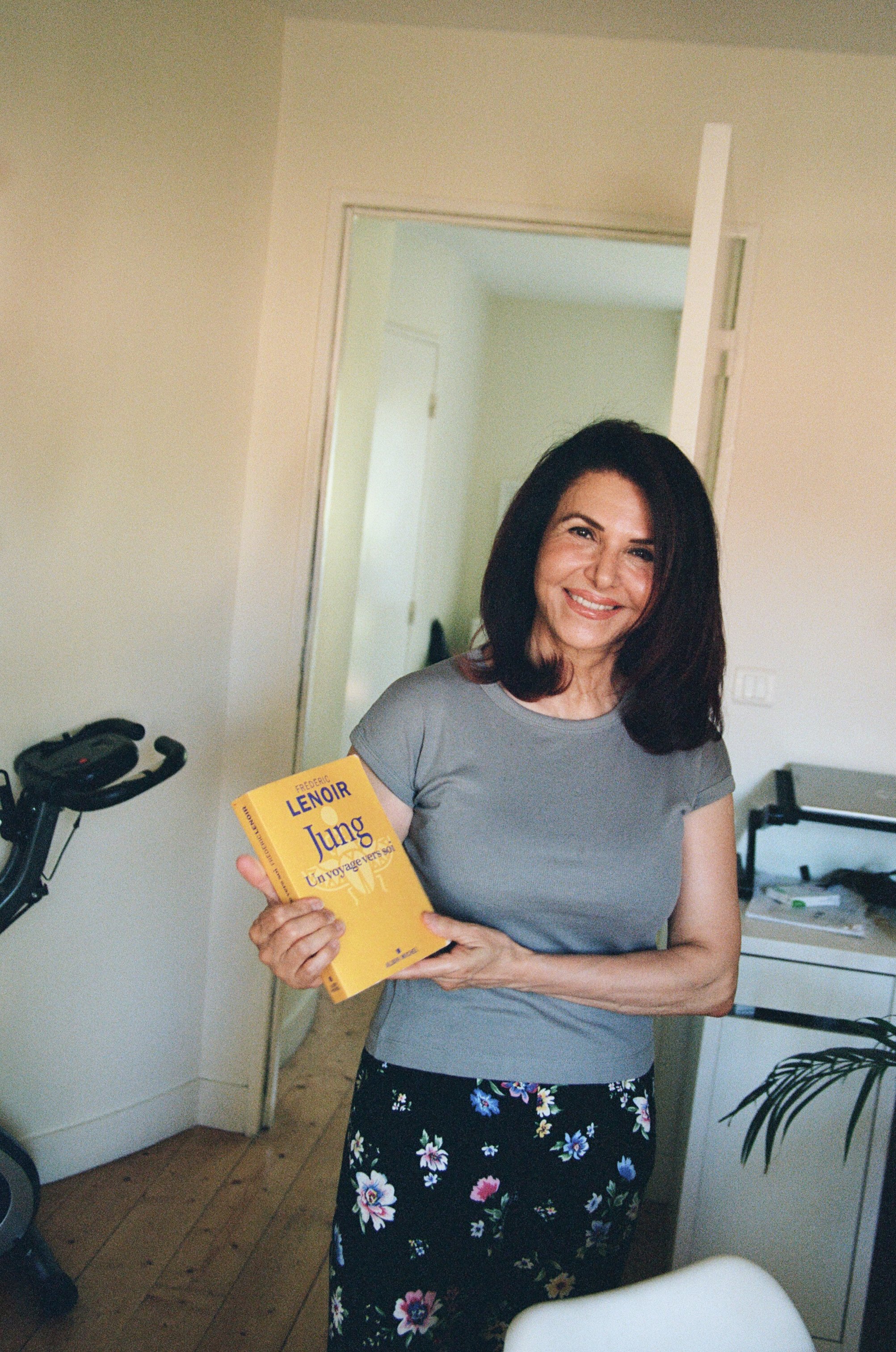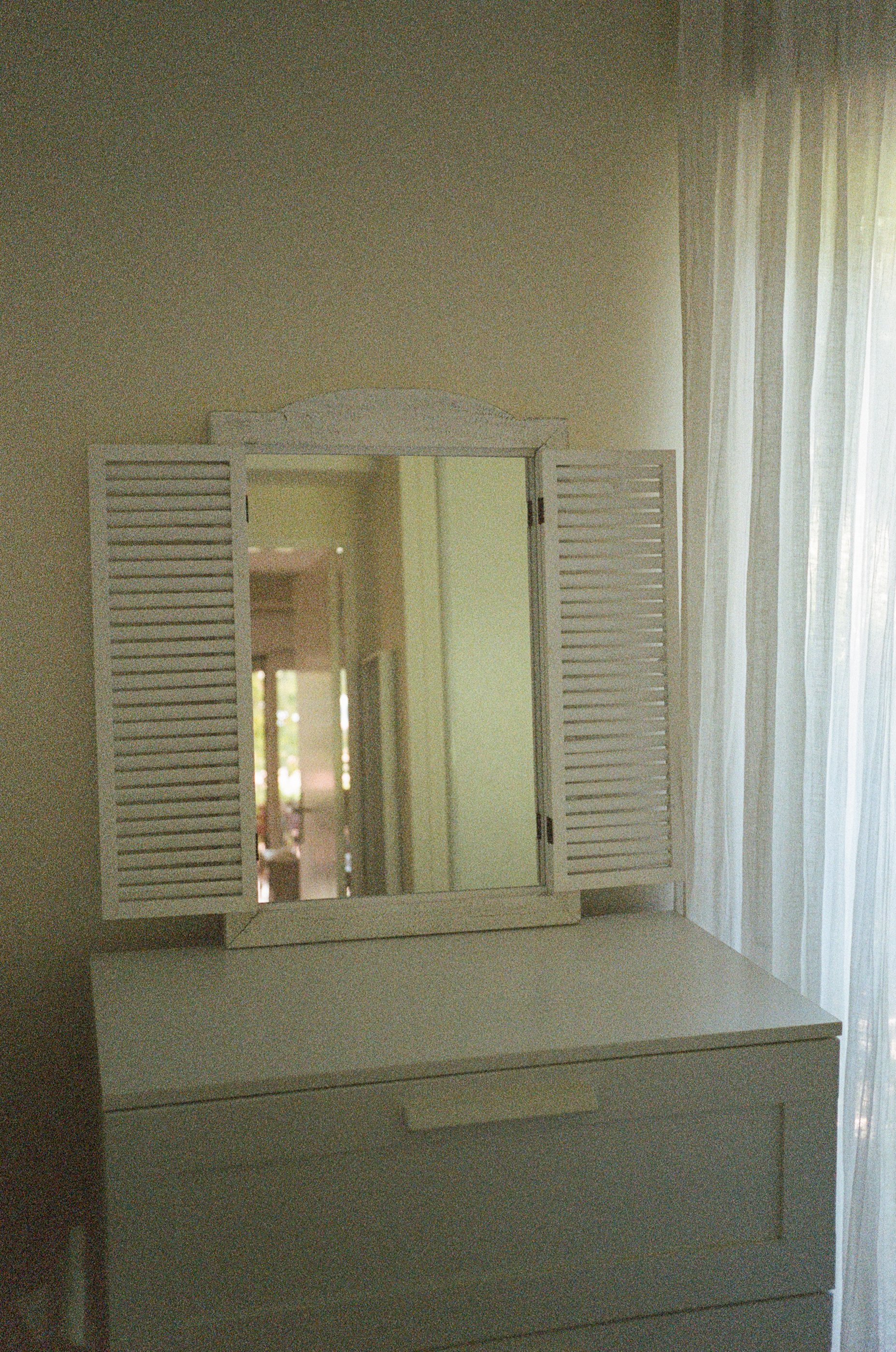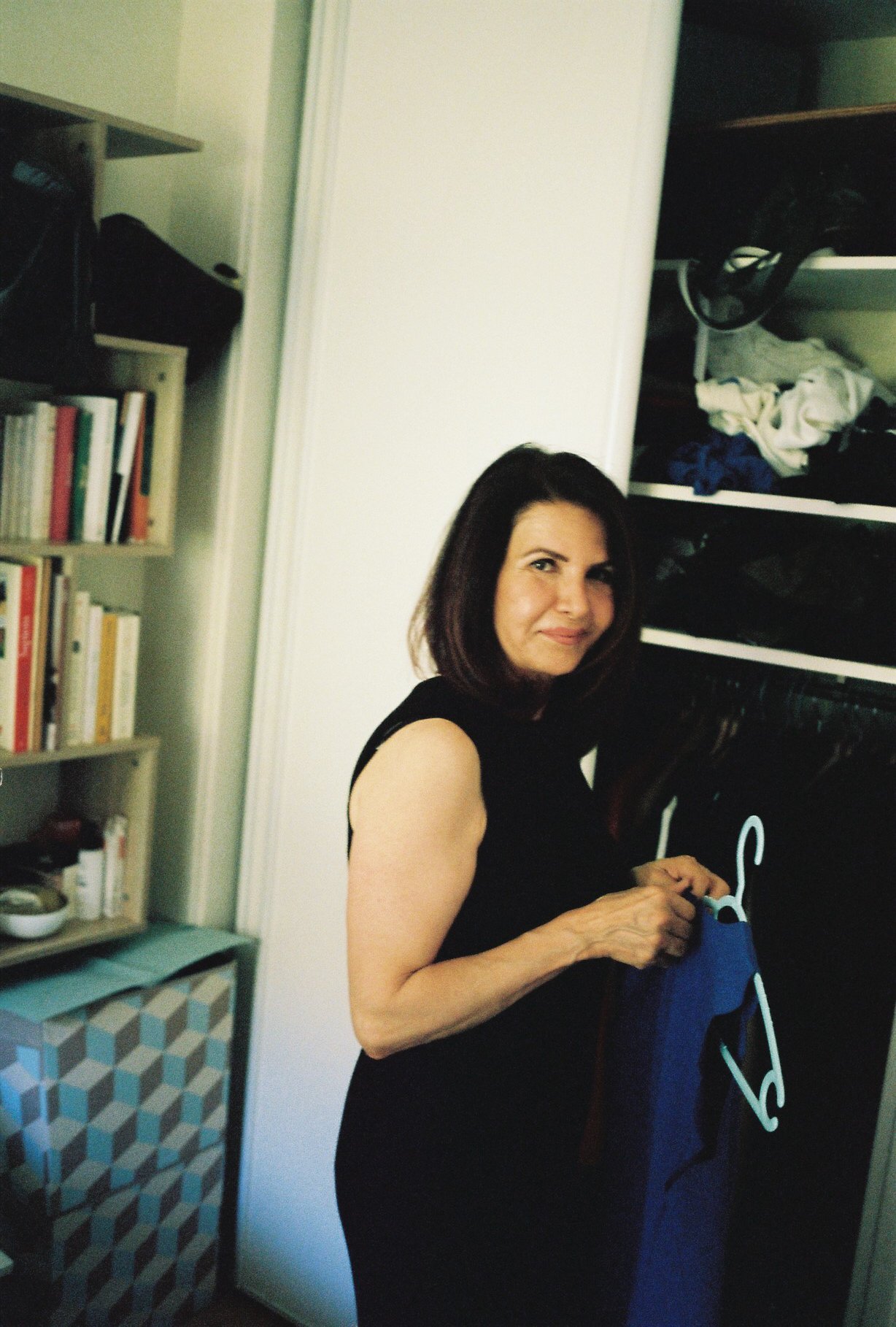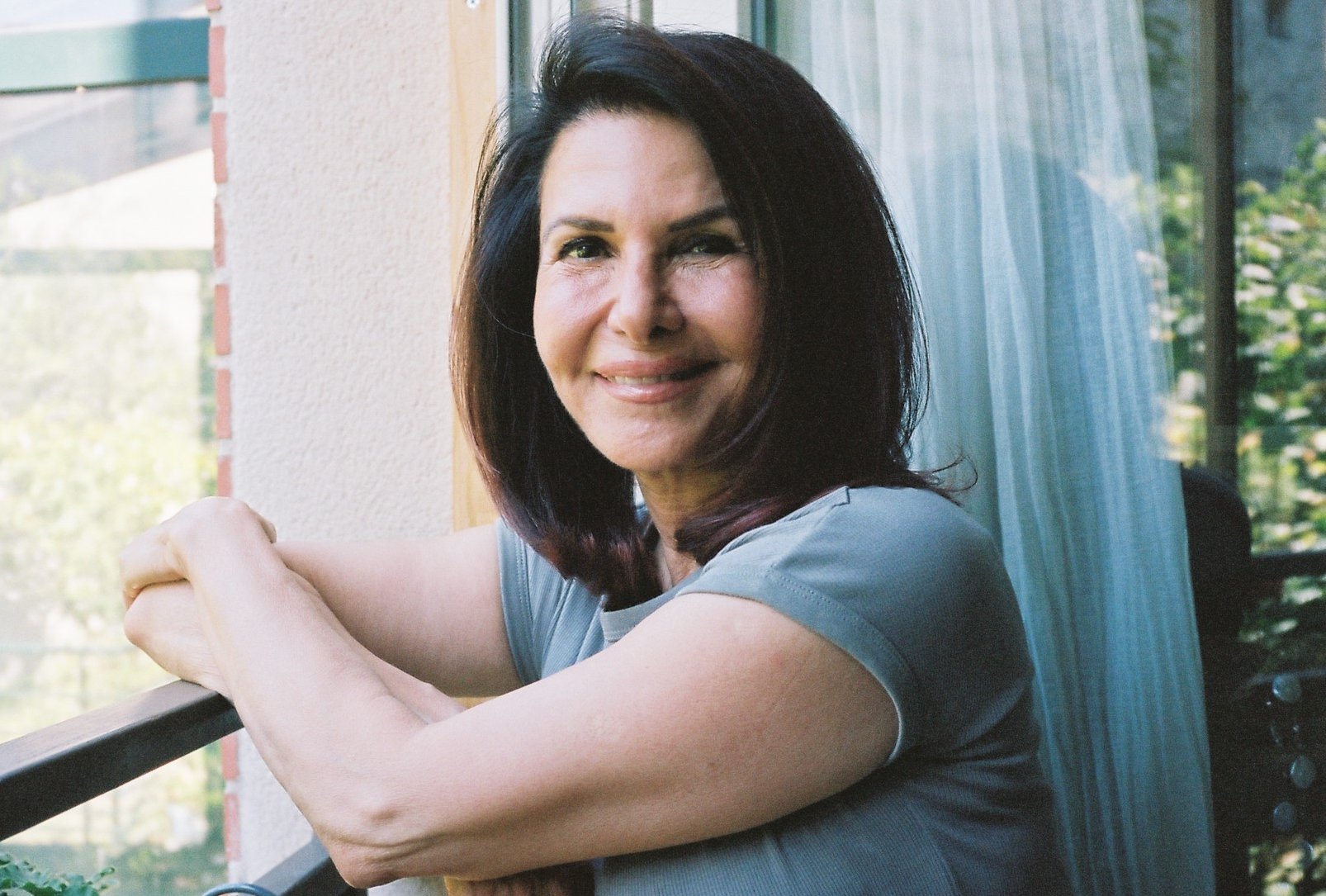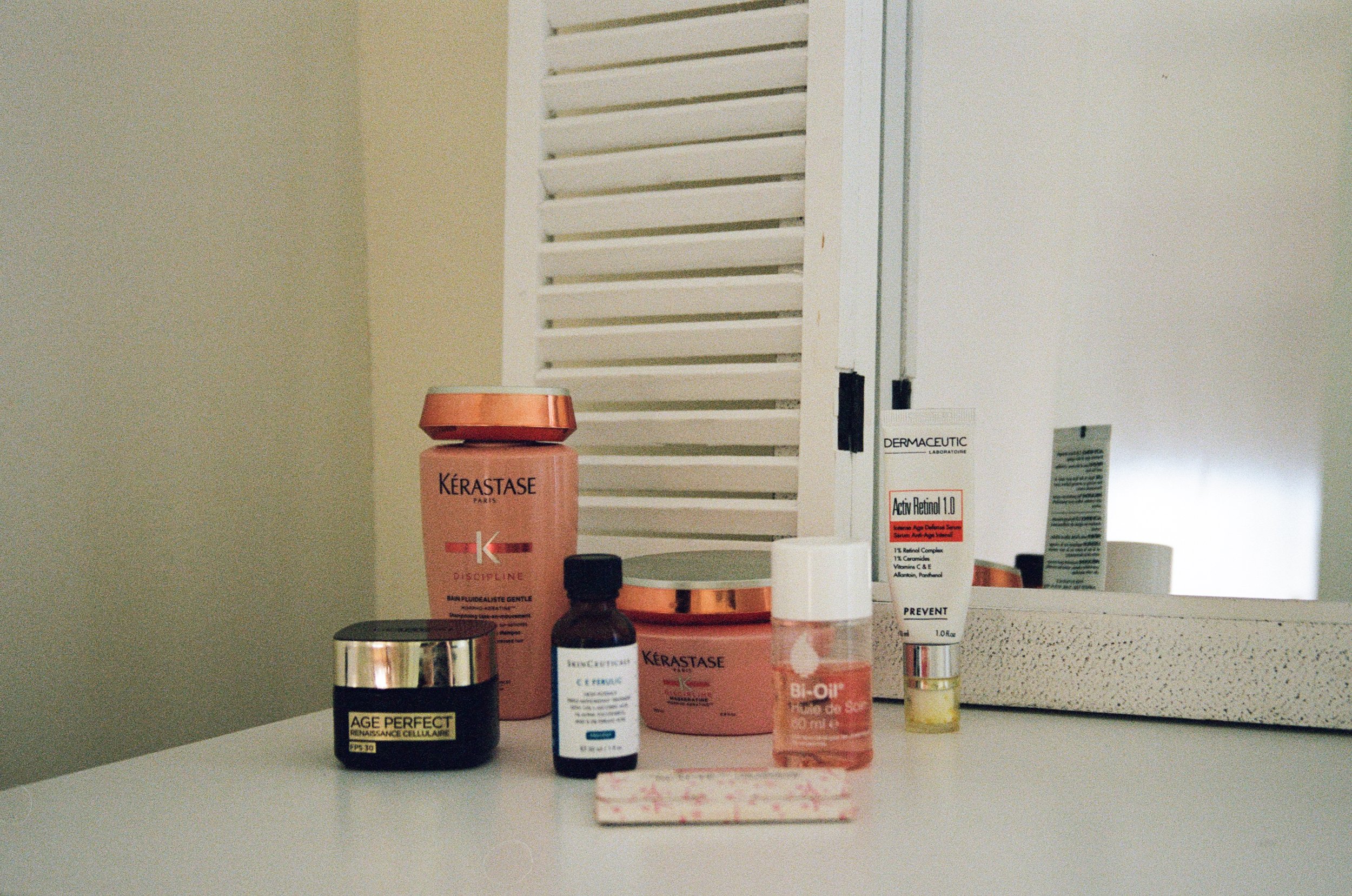Speaking to Hengameh Farhang about her life experience to date feels like a roller coaster ride. Born in Iran, she has uprooted more often than most: first moving to Paris for school and business, then Dubai for love, the US for her daughter, and finally back to France to save her physical and mental health. There, she can usually be spotted frequenting Café Le Rostand opposite the Jardin de Luxembourg (her father’s favorite restaurant — he remains her biggest inspiration to this day) or looking at the ducks in Parc Montsouris to rejuvenate. In this interview, Hengameh speaks to us about her three abortions, opening up a business as a young woman, and navigating marriage despite her ex-husband’s addiction issues.
♫ Listen to hengameh’s playlist | ⌨ hengameh’s last google search
on her morning routine
Breakfast is a really crucial time for me as this is when I get my energy, so I attach a lot of importance to it. I don’t take supplements, but I do eat a lot of ingredients. I’ll make porridge and add chia seeds, flax seed, goji berries, and raisins. The night before I’ll soak some nuts like almonds or walnuts and pumpkin seeds for me to take in the morning. This keeps me full until noon. I usually watch Telematin on TV — but I’ll listen to the news only once. After they get repeated I’ll mute, as it can be quite demoralizing these days.
on her early career aspirations and what made her move to Paris
I wanted to become an architect or interior designer. I had asked my father, because at the time you had to ask permission and there was a really strong culture of hazing at art schools — sometimes it got so bad that kids were traumatized to the point of suicide. Because of that, my father said no, “they're going to strip you down and make you walk the streets. This is no place for you.” So I left Iran to go to university in France like he had done. At the time, there was nobody to guide me. My father wanted me to study economics like him, but I said no just to oppose him and did sociology instead. I had always been interested in everything human and connecting with people gave me energy. After 2 years in France, I was in such admiration of Paris’ beauty that I stayed.
on her thesis and Iranian society today
I remember my thesis focusing on the impact of religion in Iran at the time when Khomeini was in Paris. I spoke out against voting for him and was vocal about how bad and destructive it would be for our country. And I was completely right — we see the result now. They have destroyed the Iranian society.
on opening her own business
Coming out of college in 1981, I couldn’t see myself working in an office. I had a childhood friend who would often complain about how she couldn’t find a place to do her laundry — that sparked the idea for me to open up my own laundromat. I walked all over Paris to look at construction sites and find apartment buildings that didn’t have room to have washing machines because I knew that location was key. One day, I was walking in the 13th arrondissement and I saw a butcher shop that had a for sale sign. I asked to speak to the owner and told him I was interested, but it depended on how much he needed for the advance. I then had to convince my father to support the endeavour. For six months, I wrote letters to him almost every day. I harassed, phoned, and wrote to tell him that I would not go back to Iran and to trust me with the money for the advance — finally, he did. I turned the butcher shop into a self-service laundromat with machines.
on navigating her business as a young woman
It wasn’t easy at first. People couldn't understand a girl as young as me running a business like that and putting in seven days a week. I remember I once caught a homeless man about to attack a woman with a knife in the laundromat. I handled it by being extremely calm and talking to him for almost a quarter of an hour to make him put his knife back in his pocket.
But it was a success — people would line up around the corner. I often didn’t tell them I was the owner and just stayed for two or three hours talking to them. Students, married women.
I had everything: money, youth, attention from men. The only thing I didn’t have was a partner and a child.
““An older woman once told me to never let your knees touch the ground. Because when you’re down, it’ll be hard for you to get up. Be determined and if you fight you will find what you are seeking. She was right — I’m a strong believer of determination. And this doesn’t mean just wanting something, but wanting something so much that you do everything it takes.””
on her three abortions
I had my first abortion in 1976 when I was 19 years old. My father did not want me to marry the man I was with because of differences in education and family backgrounds. I had an abortion even though it was illegal and frowned upon in Iran and I was really treated horribly by the medical staff. When I said I was in pain, the nurse flat out told me “Good for you, you shouldn’t have gotten pregnant.”
My second abortion happened when I was with a partner I couldn’t see myself with long-term. He wanted to keep the baby, but I said I don’t even want to keep you. The third was with my ex-husband. I was supposed to have twins and I wanted to keep them. He did at first, too. But one day, he changed his mind and said he couldn't take responsibility for two babies. I was over 3 months at that point, and it was very dangerous for me to have an abortion. I had the procedure at a clinic in the 16th arrondissement in Paris and had to get on an IV afterwards because I had lost quite a lot of blood. The nurses wouldn’t give me a sedative and when I called out for help, no one would come. So I took out the IV and walked into the hallway, with blood everywhere. That got the nurses’ attention and they tried to calm me down and finally took care of me.
When I got pregnant again, I kept the baby. I said to myself if I have an abortion now, I'm never going to have a child again and so I'm going to keep it no matter what.
on moving to Dubai in the 90s and navigating her ex-husband’s gambling addiction
I didn't even know where Dubai was. I was living in Nice at the time and my husband was gambling the capital I got from selling my businesses at the casinos. On top of that my child was really sick because she was premature and had a lot of health problems. I had one foot in the hospital to take care of my daughter and the other in the casinos to look for her father. There came a time when I couldn't take it anymore and told him I'd file for divorce. But shortly after, he got a job offer in Dubai and claimed that without casinos there, he wouldn’t be tempted.
I told him I had to visit before making a decision. I was invited by his company and I remember asking the driver to show me the best places in Dubai. He took me to an incredibly luxurious shopping mall and showed me the villas that were houses for the expatriates. They looked like palaces. He also showed me the Hilton club, where expats would spend most of their days, women especially. The first couple of years, I thought we could start over — I was amazed by the wealth and we had a very nice life with a big house that I decorated. But then my ex-husband managed to find his way into an underground gambling scene once again. That’s when I started looking for a plan B.
on finding her own path after divorce
I enrolled in business school in Dubai to learn how to write and speak English. In Dubai, they didn't require people to be fluent in languages. There were 70 different nationalities, so everyone basically spoke with their hands. Then I met this entrepreneur at the gym of the Hilton Club who was looking for a secretary and I started working for him. That gave me the confidence to draft my resume and apply to different positions, including a job I eventually landed at an electrical company called Hager. Throughout my career, I would always be in charge of customer service, which I enjoyed very much — I was very beloved by my clients. What I’ve learned to be the key to success is determination and a lot of empathy.
On living in the US and moving back to france for her health
I was let go from my job during the 2008 economic crisis and started working for my ex-husband out of sheer desperation. In a society like Dubai, when you’re over 45, you are considered quite old. My daughter was moving to the States at the time, so I thought I’d follow her. I sold everything to move and settled in California because of the weather and my friends. I had to enroll in a college in order to get my papers, which cost $4,000 every three months. Once I was finally allowed to work on American soil, I had no money left. I began to lose my pride because I could not keep up with my friends who were quite wealthy, even though I worked as an Uber driver and would waitress parties of rich Iranians. I ended up seeing the cruel side of my community and that they equate money with dignity.
I called my friend back in Iran and said I have never been so humiliated in all my life. At this point, I had started having heart problems and trouble breathing and couldn’t afford a doctor in the US. She called her brother who was a pediatrician in LA, and he told me that I had to go to the hospital immediately. I didn’t want to because I had to work and didn’t have health insurance. One night, it was so bad that I had no choice and I went all alone, and left 10 days later. They had to operate and replace my heart valves — I had said my goodbyes in case I wouldn’t come out of surgery.
A friend in France told me I should return back there, that the French government is more humane than the American and that I would have support. It was in the hospital that I decided to follow her advice. My friends rounded up $12,000 for me to move back and start my life from zero. My return to France, the country that adopted me 100%, is the best decision I ever made.
““I always attached importance to beauty on the outside and inside, because I think they compliment each other. It’s a respect within oneself if you keep up with your appearance. Even when I’m home alone, I wear pajamas that I like. I’d like to age gracefully and seek the beauty and radiance that some women win with age.””
on her favorite books
I really enjoy reading — it has helped me tremendously to overcome problems and move towards wisdom and peace in myself. I love Frédéric Lenoir’s books, especially the one about philosopher Carl Jung, Jung, A Journey Towards Oneself. It helped me a lot, a lot, especially in the moments when I felt very, very low. I also love reading books by stoicism philosophers and epicurean philosophers, like André Comte-Sponville’s The Pleasure of Thinking or God’s Psychotherapy by Boris Cyrulnik. Sapiens by Yuval Noah Harari is another one of my favourites.
on her beauty and health routine
In the mornings, I use a foam cleanser that respects my skin’s PH, then I put on Aloe Vera for 20 minutes. I just buy the plant at the store, but it, and squeeze the gel onto my skin — it’s really cheap and I think it’s the best natural serum. I follow that with a Vitamin C serum by Skin Ceuticals, Bio-Oil to even complexion, and L’Oreal’s Age Perfect moisturizer with sunscreen. At night, I use a retinol by Dermaceutic. For my hair, I trust the Kérastase discipline range. I also exfoliate and scrub with a Kiseh and Sefidab, a kind of glove and cleanser from Iran that help remove dead skin.
on her personal style
I am a flirt and like to dress playfully. I used to wear luxury brands like Max Mara, Gucci, and even lingerie by Chantal Thomass. I still have the eye now, even though my means are less. I’ll go to Zara, buy something for 15 Euros and people think I’m wearing a luxury brand. I also kept my branded bags to elevate any outfit.
Hengameh’s favorite spots in Paris
Parks: Jardin du Luxembourg, Parc Montsouris
Café: Le Rostand
Restaurant: Mazeh for the best Iranian food
images and interview by clémence polès

